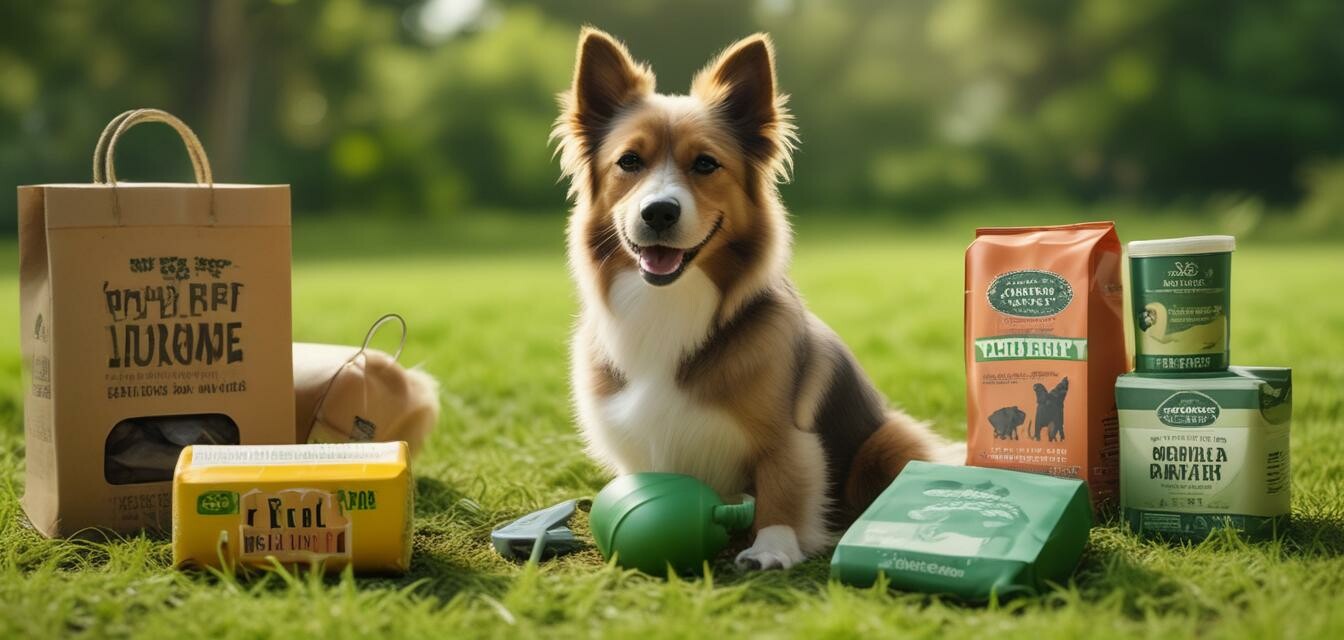
Pet Owners Embrace Sustainability: Key Findings from Recent Studies
Key Takeaways
- Over 70% of pet owners are seeking eco-friendly products.
- Sustainability is becoming a major factor in purchasing decisions.
- There is a growing trend toward sustainable food options for pets.
- Consumers are more likely to support brands with strong environmental practices.
- Education on sustainability significantly affects consumer choices.
The pet industry is rapidly evolving, with recent studies shedding light on a notable trend: pet owners are increasingly prioritizing sustainability in their purchasing decisions. This article delves into the key findings from these studies, presenting compelling data that illustrates how eco-conscious practices are now at the forefront of pet ownership. As environmentally friendly options gain traction, consumers are becoming more discerning about the products they choose for their furry friends.
Understanding the trend towards eco-conscious pet ownership
Studies have indicated a significant shift in consumer behavior among pet owners, with many actively seeking sustainable options. This change is not only driven by personal preferences but also by a growing awareness of the environmental impact of pet products. Below is a summary of recent findings that highlight this shift:
| Study | Key Findings | Implications for Brands |
|---|---|---|
| Pet Industry Trending Report 2023 | 72% of pet owners prefer biodegradable products. | Brands must offer eco-friendly options to compete. |
| Sustainability Impact Analysis | 64% of consumers are loyal to brands with sustainable practices. | Building an eco-friendly reputation is essential. |
| Green Pet Ownership Survey | 50% reported willingness to pay more for sustainable options. | Pricing strategies should reflect sustainable value. |
The role of education in consumer choices
Education plays a critical role in shaping the preferences of pet owners. As consumers become more informed about the environmental implications of their choices, they are more likely to seek out products that align with their values. Brands that invest in educating their consumers about sustainability can significantly influence purchasing decisions.
Tips for eco-conscious pet owners
- Research brands to understand their sustainability practices.
- Choose biodegradable waste solutions to reduce your environmental footprint.
- Opt for sustainable pet wearables that are made with eco-friendly materials.
- Support companies that actively participate in local environmental initiatives.
- Consider eco-friendly pet food options that utilize sustainable sourcing.
Emerging trends in sustainable pet products
As the demand for eco-friendly pet products grows, manufacturers are stepping up their game by developing innovative and sustainable alternatives. Some notable trends include:
- Biodegradable waste bags: An increasing number of companies are producing waste bags made from plant-based materials.
- Natural grooming products: Many new grooming products are being formulated without harmful chemicals, focusing instead on natural ingredients.
- Eco-friendly bedding: More bedding options are being made from organic or recycled materials.
- Sustainable toys: Brands are designing toys using renewable resources and environmentally safe materials.
The impact of sustainable practices on pet ownership
Adopting sustainable practices is not just beneficial for the environment; it also fosters a sense of community among pet owners. By choosing eco-friendly products, dog and cat owners can be part of a larger movement that advocates for the health of our planet. Additionally, brands committed to sustainability are likely to build loyal customer bases, as consumers increasingly advocate for responsible business practices.
Looking ahead: Challenges and opportunities
While the trend toward sustainability in pet ownership is encouraging, there are challenges that consumers and brands must navigate. The following table summarizes critical challenges and potential opportunities in the eco-friendly pet market:
| Challenges | Opportunities |
|---|---|
| Higher costs of sustainable products | Growing demand allows brands to invest in sustainable sourcing. |
| Lack of awareness among pet owners | Educational campaigns can enhance consumer knowledge. |
| Limited availability of certain products | New brands can fill gaps in the market. |
Conclusion
The shift towards sustainability among pet owners reflects a broader trend towards eco-conscious living. As consumers continue to prioritize the environment in their buying decisions, it’s clear that brands must adapt to meet these new expectations. By embracing sustainable practices and educating consumers, the pet industry can thrive while contributing to a healthier planet. For more insights into sustainable trends in pet care, visit our blog on sustainable trends in pet care.
Pros
- Supports a healthier planet.
- Encourages responsible pet ownership.
- Strengthens communities through shared values.
Cons
- Higher costs may limit access for some consumers.
- Not all products are readily available everywhere.
- Some consumers may lack knowledge of eco-friendly options.
Stay updated with the latest Pet Industry News by exploring our other articles and insights here.